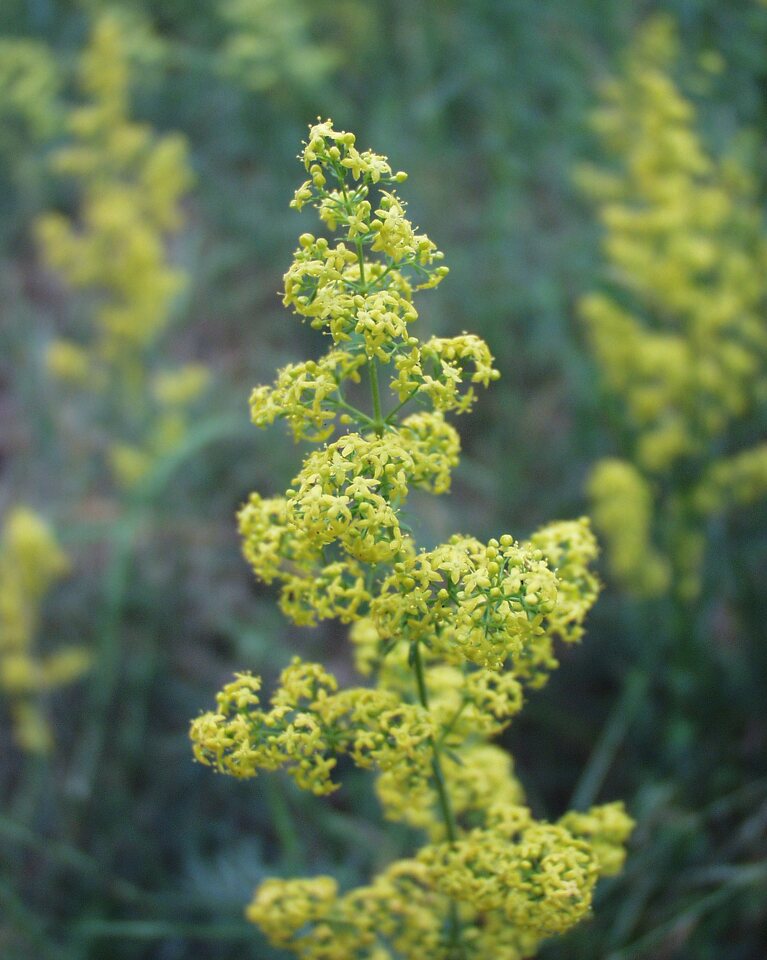
Galium verum · tikrasis lipikas
- lady's bedstraw, yellow bedstraw
- Echtes Labkraut, Gelbes Waldstroh, Liebfrauenbettstroh, Liebkraut, Gliedkraut, Gelb-Labkraut
- tikrasis lipikas
- īstā madara
- przytulia właściwa
https://en.wikipedia.org/wiki/Galium_verum It is a herbaceous perennial plant widespread across most of Europe, North Africa, and temperate Asia from Israel, Lebanon and Turkey to Japan and Kamchatka, naturalized in Tasmania, New Zealand, Canada, and the northern half of the United States and considered a noxious weed in some places.
Galium verum is a low scrambling plant, with the stems growing to 60–120 cm long, frequently rooting where they touch the ground. The leaves are 1–3 cm long and 2 mm broad, shiny dark green, hairy underneath, borne in whorls of 8–12. The flowers are 2–3 mm in diameter, yellow, and produced in dense clusters.
In medieval Europe, the dried plants were used to stuff mattresses, as the coumarin scent of the plants was believed to act as a flea repellant. The flowers were also used to coagulate milk in cheese manufacture (which gives the plant its name, from the Greek word γάλα, gala 'milk') and, in Gloucestershire, to colour the cheese double Gloucester. The plant is also used to make red madder-like and yellow dyes.
Daugiametis, 30-90 cm aukščio žolinis augalas. Stiebas apvalus, su 4 išilginėmis briaunelėmis, kylantis arba stačias. Lapai linijiški, 1 mm pločio, po 6-12 menturiuose. Žiedai maži, geltoni, kvepia medumi. Vaisiai pliki, sudaryti iš dviejų rutuliškų dalių, kuriose yra po vieną sėklą. Žydi birželio – spalio mėn. Auga sausose pievose, šlaituose, ganyklose, dirvonuose.
0 comments
Add a comment